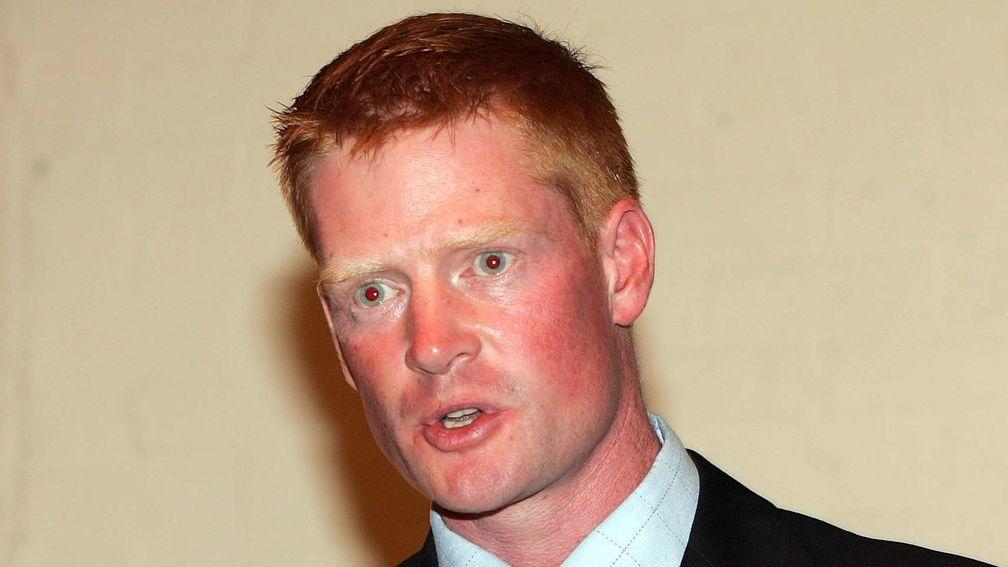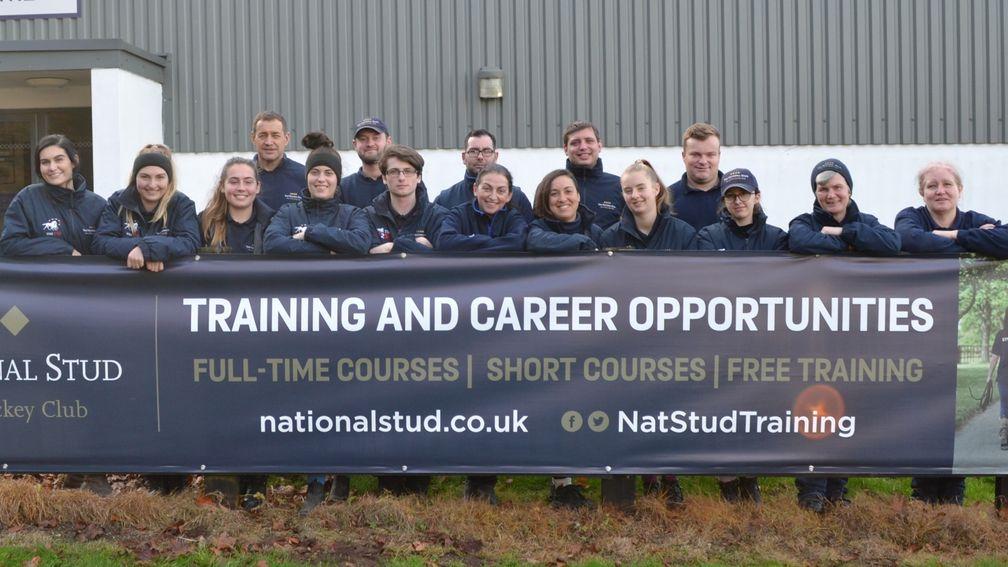Studs offer a fresh start - but can supply keep up with demand?
Tom Peacock looks at the way the bloodstock industry captures and retains talent

With breeders seemingly finding it harder than ever to locate suitable employees, it is impossible to overstate the importance of discovering new recruitment avenues and improving the lot of the existing workforce.
Lack of requisite skills has been given by studs as a frequent reason as to why they struggle to fill vacancies, yet it is not straightforward to acquire them in the first place.
Various rural colleges teach equestrian qualifications but for the in-depth knowledge of thoroughbreds and bloodstock, only two places offer the specifics. The Irish National Stud’s six-month course takes on 30 students ever year from more than 100 applicants, while the National Stud in Newmarket is aiming to put around 45 students through their paces in two particular courses.
The new Entry to Stud Employment (E2SE), run in partnership with the Thoroughbred Breeders' Association, spreads the tentacles wider and is available to all ages and experience levels. Students go through a nine-week crammer before being sent into placements as stud hands. More funding would be needed to expand further.
National Stud training director Tabbi Smith says: "It depends year-on-year but it’s a very steady growth. It’s always going to be a niche market but it’s always going to be oversubscribed because what other options are there to give you such an amazing opportunity?
"We never select on ability or where they’ve come from, it’s always about their passion and their desire to be of use.
"We do a lot of recruitment work, trying to widen the channels we have because a lot of people never thought it was available to them. We do college visits, careers fairs and there’s actually a lot of interest via Indeed recruitment, where people are looking for a change."
A lack of regulation
More bodies are clearly needed than those graduates, and holding on to those already employed is as much of a priority.
And are they happy? Given last year's survey from the Racing Foundation suggested that staff retention issues were more than twice as likely as the national average, then the answer cannot be a resounding 'yes'.
Satisfaction is hard to gauge when stud workers do not actually have a trade union, because membership to the National Association of Racing Staff (NARS) comes via a percentage of the racing staff prize money pool.
NARS chief executive George McGrath, who has enhanced the work-life balance of his 6,500 members with agreements for a 40-hour working week and improved minimum rate of pay, revealed it was "quite rare" to have contact from stud workers and that it occurred perhaps two or three times per month.
Grievances largely reflect the rest of the equine industry, relating to pay, overtime and holiday entitlement.
"In a nutshell we are not mandated to represent stud staff, but we do," he says. "Within the office, we have never said no to anybody who is working in a stud.
"They’d only come under general employee regulations and laws otherwise, but you need to have industry knowledge in order to understand the very nature of their problems."
Although satisfied that most studs seemed to be looking after their employees well, and aware that union intervention would not necessarily be welcomed, McGrath feels that a closer relationship would be mutually beneficial.

"You’ve still got that pool of people who enjoy working with horses but aren’t actually cut out to work in a racing yard, who would be ideal to work in studs. We’re talking about people who loved the thrills and spills of it in their teens 20s, 30s. But when you’re 40, 50, you’ve got an employee with an abundance of knowledge who feels that they can no longer ride racehorses.
"It’s a trick they’re missing. I couldn’t advocate someone transferring from a racing yard to a stud yard because I don’t have a memorandum of agreement with the TBA. They don’t really know what’s available in a stud, or what the transfer would look like, and I can’t help the TBA because they don’t have a register of staff."
Case study: Jack Conroy, 27, Chasemore Farm
Jack, from Battersea in London, was a qualified plumber
"I always wanted to do something else. I was working for my dad, doing loft extensions, but had been quite good at gambling. I think my first bet was on Big Buck’s when he won his first Stayers’ Hurdle and it sort of escalated, then I became more interested in how they do everything.
"I hadn’t even touched a horse until I was 23. In Lavender Hill there obviously weren’t many horses, or even much grass! I just rang [trainer] Pat Phelan in Epsom and asked if he needed any help at weekends so I could learn a little bit, just mucking out. Pat was really nurturing; I got a place on the National Stud course six months later and straight on to Coolmore Australia. I won the 'most improved' at the National Stud, although it couldn’t have been hard to improve much as I didn’t have many skills at all!
"I became assistant manager at Chasemore and now I’m the farm manager, so I've gone up the ladder. It’s hard work, especially last year we had hardly any staff and a lot of horses. I was doing the jobs of three people and that’s where the industry loses staff, from what I’ve seen. We’ve got a one in three weekend scheme now, which people are quite attracted to, and we try to make sure we’re almost a bit over-staffed so we aren’t trying to make up the numbers all the time."

Case study: Valentina Minatta, 33, National Stud E2SE student
Valentina, from Italy, is on placement with Watership Down Stud
"I have a degree in pharmaceutical and medical biotechnology and when I came to England I sent out some CVs but nobody replied, so in the meantime I found a job.
"First I was as a waitress in a restaurant, then I became a supervisor and was travelling around the UK training staff. After three years I wanted a change and the course just popped up online. I always loved horses, wanted a job outdoors, and when I found it I said to myself 'that’s what I’ve always wanted to do'. I never imagined a job like that, certainly not in Italy. Everything is about football there.
"The first two weeks were very tough - I didn’t know anything about stallions or leading a horse, or even know the words for things like fork or broom, but when you love something you don’t care. I want to learn everything from the basics, and one day I can maybe find something linked to the research field again. I also love travelling, so this opens up lots of opportunities.
"It’s not difficult work but it’s physical. It was hard, but I love it now. It’s important that managers look after their staff and that they’re able to talk if they have problems, I think that’s a reason why some people have left. I’d recommend it if you like horses, then you can see which bits you like so that you can progress."

The future?
Working as stud and stable staff is never going to be a pathway to untold riches or leisurely hours, even if all betting and racecourse revenue were to miraculously fall into the clutches of the sport itself.
The fortunes of each business are dependent on the health of the market and capable management, and in turn require the right people to keep the wheels turning. That the supply of manpower seems not to be keeping pace with the demand for horses is the point which should occupy our governing bodies.
What prevents total despondency is that at least people of all ages are still finding their way in, whether for an escape from office life, or greater responsibility and tangible fulfilment. Capitalising on and multiplying these success stories is one of the best hopes, and requires concerted co-operation.
The beauty of a horse and the opportunity to work with it will always be racing’s greatest selling point. Employers, however, must accept that they cannot rely upon this alone.
Read more...
Part one: Demands of modern life run against requirements by breeders
Published on inNews
Last updated
- Classic hero Metropolitan set for strong home support with Etreham busy at the sales
- 'It has been nothing short of incredible' - Grace Hamilton on Godolphin Flying Start experience
- ‘She’s one of the best two-year-olds in Europe’ - bluebloods set to go down a storm at Arqana Breeding Stock Sale
- HRI announces academy hurdles for unraced three-year-olds starting next season
- Half-sister to Breeders' Cup winner Starlust among Tattersalls Online December Sale highlights
- Classic hero Metropolitan set for strong home support with Etreham busy at the sales
- 'It has been nothing short of incredible' - Grace Hamilton on Godolphin Flying Start experience
- ‘She’s one of the best two-year-olds in Europe’ - bluebloods set to go down a storm at Arqana Breeding Stock Sale
- HRI announces academy hurdles for unraced three-year-olds starting next season
- Half-sister to Breeders' Cup winner Starlust among Tattersalls Online December Sale highlights